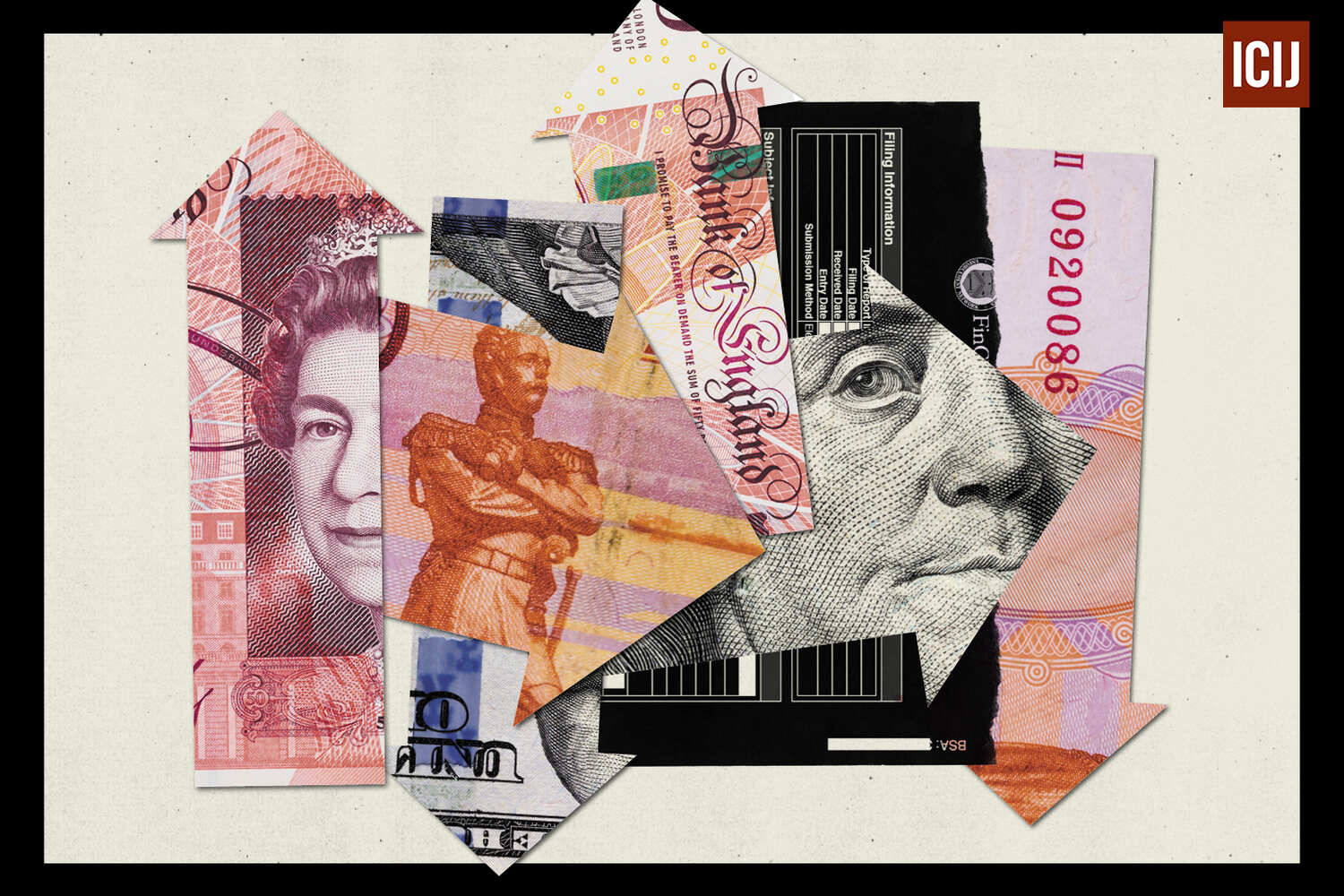Imagine a world where vast sums of money, earned through illicit activities, disappear into a labyrinth of transactions, leaving no trace. This is the reality of money laundering, a global criminal enterprise that thrives on secrecy and complexity. While the practice is pervasive, certain networks, particularly those originating from China, have developed sophisticated methods to clean dirty money on a scale that’s staggering. This article delves into the intricate world of Chinese money laundering operations, exploring their tactics, impact, and the ongoing battle against them.

Image: www.occrp.org
A recent news report about a high-profile arrest of a Chinese national, charged with orchestrating a multi-million dollar money laundering scheme, brought this issue to the forefront. The sheer audacity of the operation, involving shell companies, offshore accounts, and intricate layers of transactions, was astonishing. This incident, while not isolated, serves as a stark reminder of the ever-evolving nature of this criminal activity.
The Dark Underbelly: How Chinese Networks Operate
Chinese money laundering networks often leverage their deep understanding of the Chinese financial system and its intricacies to operate. They employ a variety of techniques, but some common methods include:
- Underground Banks: These informal financial institutions, often operating outside of regulatory oversight, facilitate the movement of large sums of money through a network of trusted individuals. They typically charge high fees but offer anonymity and speed.
- Trade-Based Money Laundering: This method involves the manipulation of legitimate trade transactions to disguise the origin of illicit funds. For instance, a company might over-invoice exports or under-invoice imports, creating a financial discrepancy that can be used to move money.
- Casinos and Real Estate: These industries are known for their high cash transactions, providing opportunities for money launderers to convert illicit funds into legitimate assets. Casinos often have high-roller programs that enable individuals to spend large sums of money without strict scrutiny.
- Digital Currency: Cryptocurrencies like Bitcoin are increasingly becoming a tool for money laundering as they offer a high level of anonymity. While regulations are emerging in the cryptocurrency space, anonymity remains a significant challenge.
- Shell Companies and Offshore Accounts: These entities, often set up in tax havens with minimal regulation, provide a veil of secrecy for money laundering activities. They can be used to channel illicit funds, hide ownership, and obfuscate financial transactions.
The Global Impact and the Fightback
The scale of Chinese money laundering operations has far-reaching consequences. It undermines global financial stability, fuels organized crime, and corrupts legitimate markets. By injecting illicit funds into the global economy, these networks distort competition and create unfair advantages for criminal enterprises. Moreover, they can erode trust in financial institutions and hinder economic development.
The international community is fighting back against these illicit activities. Law enforcement agencies, intelligence services, and financial institutions are collaborating to dismantle these networks. They employ a combination of strategies, including:
- Financial Intelligence: Sharing information on suspicious transactions across borders to track the flow of money through different jurisdictions.
- Targeting Key Individuals: Identifying and prosecuting high-ranking members of money laundering organizations who orchestrate the operations.
- Enhancing Regulations: Strengthening anti-money laundering regulations and expanding oversight of financial institutions, especially those with cross-border operations.
Tips for Individuals
While most individuals won’t be directly involved in money laundering, it’s important to be aware of the red flags and how to protect yourself.
- Be Vigilant: If you encounter a financial transaction that appears suspicious, report it to the relevant authorities. This could include a business that seems to be operating suspiciously or dealing in large amounts of cash.
- Know Your Counterparty: Before engaging in significant financial transactions, particularly those with international connections, perform due diligence on the other party.
- Be Careful with Digital Currency: While cryptocurrencies offer advantages, they can also be used for illicit purposes. Ensure you understand the risks and take appropriate measures to protect your investments.

Image: www.binance.com
FAQs about Chinese Money Laundering
Q: How do Chinese authorities address money laundering?
The Chinese government has implemented a number of measures to combat money laundering. These include establishing a dedicated regulatory body, strengthening anti-money laundering regulations, and cooperating with international counterparts. Despite these efforts, the scale and complexity of Chinese money laundering operations remain a significant concern.
Q: What are the specific challenges in tackling Chinese money laundering?
Several challenges hinder the fight against Chinese money laundering. These include:
- Cross-border Cooperation: International law enforcement agencies need to effectively coordinate their efforts to track money across borders.
- Transparency: The Chinese financial system remains opaque, making it difficult to identify and track illicit transactions.
- Political Considerations: Political sensitivities can sometimes hinder the investigation and prosecution of individuals involved in money laundering operations.
Q: What is the future of the fight against Chinese money laundering?
The battle against Chinese money laundering is complex and ongoing. While significant progress has been made, challenges remain. Increased international cooperation, improved transparency in the Chinese financial system, and a continued focus on deterring and prosecuting perpetrators will be crucial in tackling this global criminal enterprise.
How Chinese Networks Clean Dirty Money On A Vast Scale
Conclusion
The practice of money laundering, especially by Chinese networks, poses a significant threat to global financial stability. Understanding their tactics, impact, and the ongoing fight against them is critical. While this article provides insights, it’s important to stay informed about the latest developments and trends in this constantly evolving criminal landscape.
Are you interested in learning more about the fight against financial crime? Share your thoughts and questions in the comments section.






